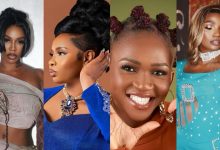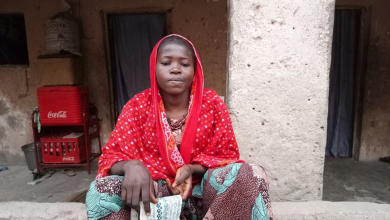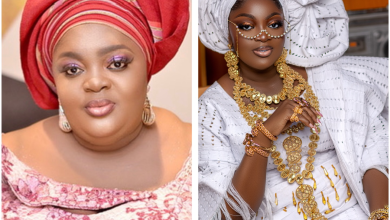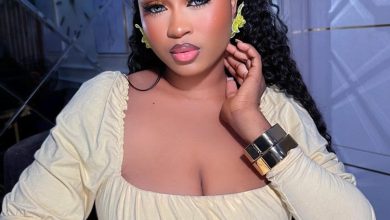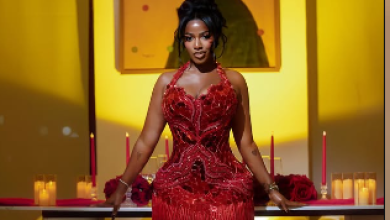Women Reshaping African Music During Women’s History Month

|
Getting your Trinity Audio player ready...
|
This Women’s History Month, Spotify celebrates the profound impact of female listeners across Sub-Saharan Africa, highlighting how they actively shape the music and podcasting landscape. Their engagement is not just about consumption; it’s about driving the growth of female artists and podcasters who authentically reflect their diverse lived experiences.
Women Breaking Barriers, Setting Records
The African music scene is witnessing a powerful wave of female innovation. Trailblazers like Tyla and Tems are redefining the industry with their groundbreaking achievements. Tyla recently made history as the first African solo artist to achieve one billion streams on Spotify with her viral hit “Water,” a testament to the expanding influence of women in global music. Tems, similarly, solidified her place in music history as the first female African artist to reach one billion Spotify streams, paving the way for future generations.
These milestones represent a significant cultural shift, centring women’s voices in narratives traditionally dominated by men.
The Soundtrack of A Woman’s Journey
Female listeners across Sub-Saharan Africa are drawn to music that authentically mirrors their realities. From the evocative storytelling of Ghanaian Hiplife to the infectious rhythms of Nigerian Afrobeats and the powerful lyricism of Kenyan Rap, women are both creators and consumers of music that resonates with their truths.
Collaborations continue to connect with female audiences deeply. Crayon’s “Ngozi,” featuring Ayra Starr, bridges geographical boundaries, resonating with women in Ghana and Kenya. Ayra Starr’s “Bad Vibes,” featuring Seyi Vibez, has also been widely embraced by Nigerian women, demonstrating how these tracks articulate aspirations and validate experiences.
Solo performances also highlight the powerful connection between female artists and their audiences. Tems’ introspective “Me & U” and Gyakie‘s empowering “Rent-Free” have become anthems that soundtrack women’s daily lives, fostering spaces of recognition and celebration.
Albums as Cultural Documents
2024 saw landmark album releases that placed women’s stories at the forefront. Ayra Starr’s introspective “The Year I Turned 21” and Tems’ bold “Born in the Wild” have dominated charts in Nigeria and Ghana, offering nuanced explorations of young womanhood in contemporary Africa.
Kenyan listeners have embraced both local and global sounds, with SZA’s “SOS Deluxe: LANA” and Tyla’s “TYLA +” receiving significant attention. Qing Madi‘s self-titled debut represents the fresh, authentic voices that female audiences are championing.
These albums serve as cultural blueprints, documenting women’s hopes, struggles, and triumphs while creating sonic spaces for reflection and celebration.
Diverse Tastes, Boundless Influence
The diverse listening preferences of women over the past 90 days illustrate their role as discerning tastemakers. Ghanaian and Kenyan women have appreciated Kendrick Lamar and SZA’s contemplative “Luther” alongside Bruno Mars and Lady Gaga’s emotional “Die With A Smile.”
Nigerian listeners have gravitated toward Ruger and Tiwa Savage‘s “Toma Toma” and Wizkid‘s collaboration with Jazmine Sullivan on “Bad For You,” demonstrating that female audiences refuse to be confined by narrow expectations. They continue to shape musical trends by pushing boundaries.
Beyond Music: Amplifying Voices Through Podcasts
Women’s influence extends into the rapidly expanding podcast landscape, where female voices and stories find new platforms for expression. The rise in podcast listenership among women signifies another dimension of this cultural renaissance.
Ghanaian women are drawn to diverse audio content spanning faith (Apostle Joshua Selman), humour (ShxtsNGigs), and cultural commentary (Sincerely Accra). In Kenya, women engage with intimate storytelling through “So This Is Love,” “The 97s Podcast,” and “The Messy Inbetween,” fostering reflection and community.
Nigerian listeners embrace spirituality (Apostle Femi Lazarus), church-based content (Celebration Church Int’l), and culturally relevant discussions (I Said What I Said). These podcasts are forums for dialogue that amplify women’s perspectives and experiences.
The Numbers Tell a Story of Rising Power
Nigeria has seen an impressive 108% increase, Kenya 26%, and Ghana 24%. These numbers reflect the growing economic and cultural influence of women who are actively shaping entertainment through their listening choices. The statistics confirm this cultural shift, with female listenership surging across the region.
As Women’s History Month invites reflection on women’s contributions and progress, these trends in music and podcast consumption reveal how African women are not just participating in culture—they are actively reimagining and recreating it. Through every stream, playlist, and shared track, they are writing a new chapter in the continent’s musical legacy, one that places women’s voices firmly at its centre.
Editor’s note: This story was first published on The21mag.
